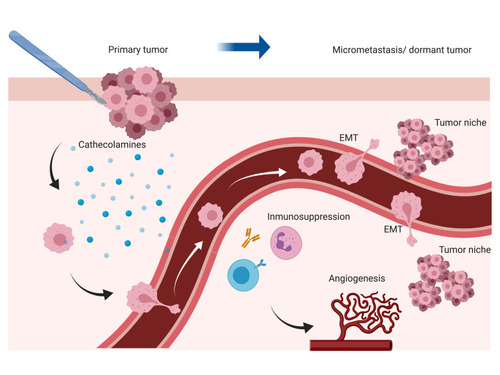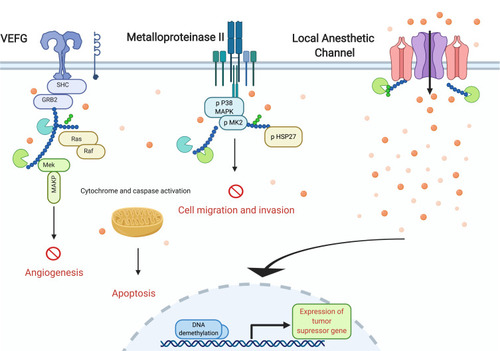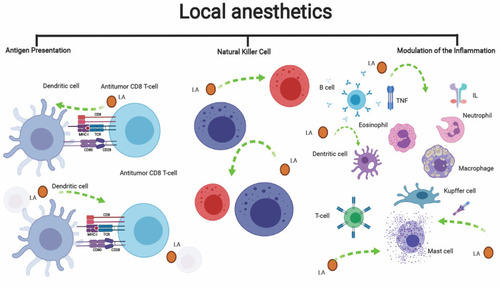Figures & data
Figure 1 Perioperative events that influence tumor metastasis and cancer recurrence. Surgery for tumor resection triggers the release of catecholamines, immunosuppression, and angiogenesis. It has been speculated that these factors facilitate epithelial-mesenchymal transition (EMT) and promote a conducive microenvironment (tumor niche) for cells to migrate, invade and proliferate.

Figure 2 Several mechanisms have been associated with the anti-metastatic effects of local anesthetics. Intracellular they inhibit signaling events linked to angiogenesis, migration, and invasion.

Figure 3 Effect of local anesthetics on immune and inflammatory cells. Local anesthetics modulate the activity of different immune cells. They potentiate natural killer cells cytotoxicity, facilitate antigen presentation, and have shown to modulate the function of neutrophils, macrophages, and dendritic cells.

Table 1 Summary of Clinical Studies, Systematic Reviews and Meta-Analysis on the Impact of Regional Anesthesia/Analgesia in Cancer Outcomes
Table 2 Summary of Clinical Studies Comparing TIVA vs Inhalational Anesthesia with Respect to Cancer Outcomes
